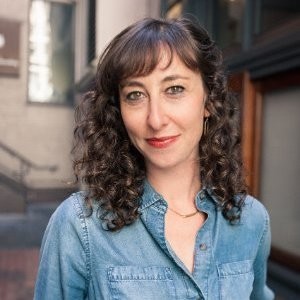
While much of the conversation at the Sustainable Food Summit focused on tools, resources, information-sharing and partnerships to help companies bolster their sustainability efforts, the old David vs. Goliath scenario inevitably reared its ugly – but organic! – head.
Safeway, the national grocery chain, continues to develop its own brands to compete in the organic and health and wellness categories. The recognizable O Organics line contains over 300 products and Eating Right (“nutritional”) and Bright Green (home care products) are also part of the healthier mix. In the last 90 days, the retailer has introduced two new green-minded product lines: In-Kind (+90% natural personal care products) and Open Nature (100% natural meats and poultry). Although the term “100% natural” is not a true certification (and, frankly, doesn’t carry any weight with the converted), many consumers don’t know any better. It is these less savvy shoppers to whom the store caters, as Safeway learned through research that 90% of consumers acknowledge a link between diet and health. And so it continues to pursue market share.
The company’s strategy “to make high quality organics affordable and accessible to everyone, everywhere” is having an impact on more than just the consumer. Safeway claims that consumers find the organic market cluttered and confusing, with a multitude of niche brands. Moreover, they think it’s too expensive. So the grocer is addressing these concerns by limiting choice and lowering price. How does it limit choice? Well, if the O Organics line is next to a comparable organic product that costs more, consumers primarily concerned with price will likely by the O Organics line. As this continues to happen, the retailer will determine that people don’t want to buy the other organic product and drop it from its inventory, thereby effectively forcing out smaller organic brands; while Safeway is increasing access to organics, it’s also decreasing access to the larger organic market. And let’s not forget that the more products they introduce into limited shelf real estate, the more products they have to remove.
While it’s easy to hate on the big guys in favor of the small guys, this situation does present a conundrum. Yes, it is good for the planet if more people have access to organic, healthier products. In-Kind products don’t contain parabens, pthalates or petroleum based products, to name a few. It’s incredible to see how many high-end brands can’t say as much. The problem is that by making it about price, Safeway is undercutting small brands much like subsidies undercut small farmers and, according to the presenter from Organic Valley, only less than 5% of US farmers (or under 100,000) are not subsidized. (Moreover, it's these very subsidies that make organic products seem "expensive" to consumers when really their prices reflect the true cost of production.) This sad fate of the American farmer does not bode well for the small organic players who have paved this path from niche to mainstream with innovative approaches; they created the demand that Safeway is now intent on meeting.
We’re finally at the tipping point, but now what do we do? How can we increase access to organic and sustainable products without repeating a tragic history that already plagues our food system?
Image credit: Artur Rutkowski and Monstruo Estudio via Unsplash

Ali Hart is a media strategist and content producer helping change agents harness the power of humor. From developing creative TV and web concepts to managing comedians to strategizing grassroots campaigns, she has devoted herself to exploring which messages and messengers inspire behavior change for good. Ali holds an MBA in Sustainable Management from Presidio Graduate School in San Francisco, where she currently laughs.














